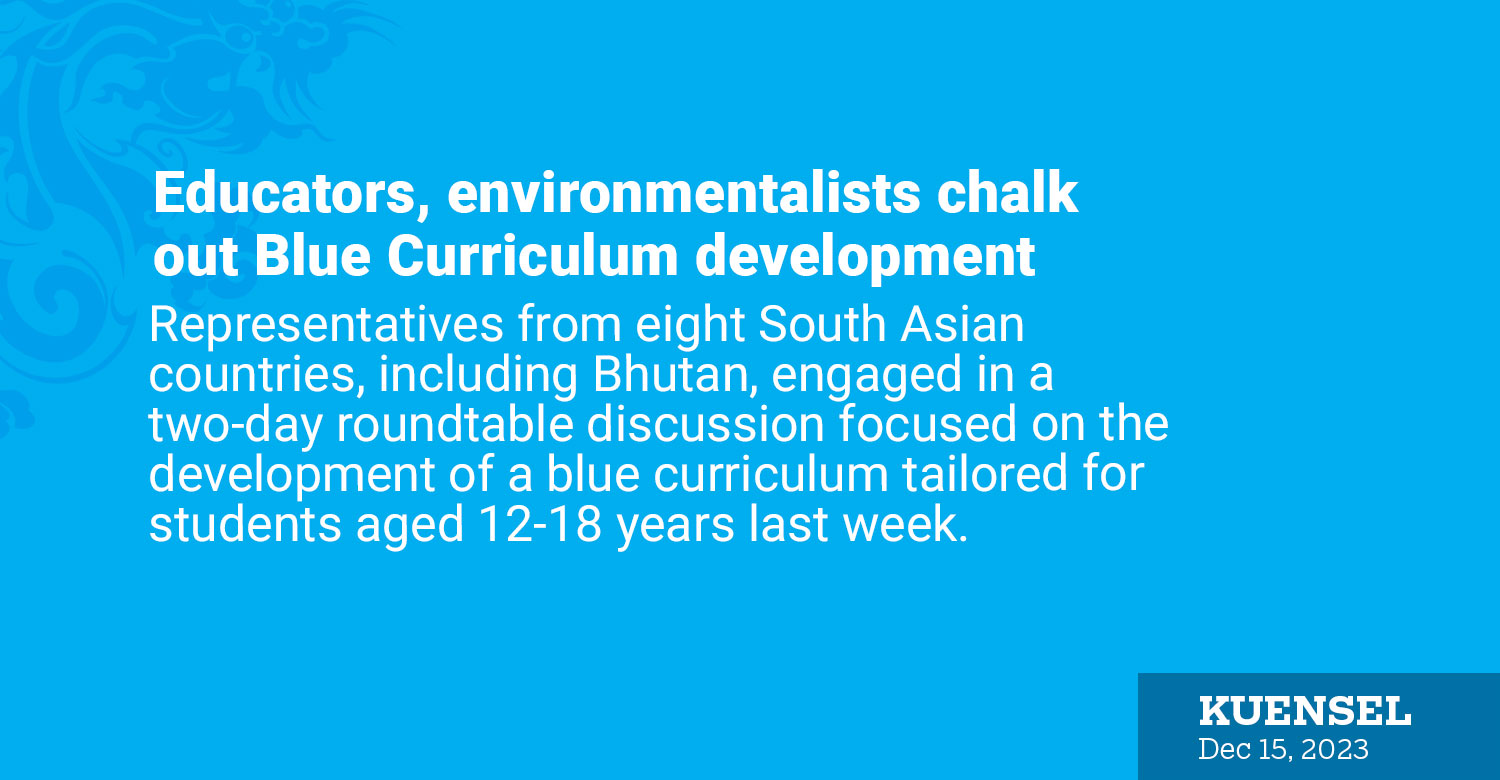Staff Reporter
Representatives from eight South Asian countries, including Bhutan, engaged in a two-day roundtable discussion focused on the development of a blue curriculum tailored for students aged 12-18 years last week.
Blue Economy refers to the sustainable use and conservation of ocean resources to promote economic growth, social well-being, and environmental sustainability.
The curriculum aims to educate students, educators, practitioners, and young people about the principles, challenges, and opportunities associated with the Blue Economy. A blue curriculum considers the ocean across multiple disciplines, connecting knowledge between the sciences and humanities; and spans local and global scales, educating as students forward- looking global citizens.
The curriculum is envisaged as an extracurricular resource applicable to educators, practitioners, students, and young people in both formal and informal educational settings.
The initial section of the educational material introduces the concept of Blue Economy and its key principles, aiming to make it relevant at both individual and societal levels. This section, emphasising hands-on activities, experimentation, and reflection spaces, aims to assist learners in visualising and sharing their ideas about sustainability and the blue economy.
The indicative learning journey from deliberations encompasses developing perspectives for Blue Economy, fostering curiosity and inspiration, exploring Blue Economy principles, and participating in activities like discovering Blue Economy principles from nature.
Participants held discussions that accentuated the expansive scope of “Blue” in Blue Economy, with a specific focus on marine ecosystems.
A challenge for young minds is introduced, prompting reflection on lessons from marine life to inform Blue Economy practices.
Participants also delved into the potential of Blue Economy in the context of its connection with oceans, the Bay of Bengal, and the BIMSTEC region. Through activity-based learning, participants aim to develop fresh perspectives on valuing oceans and gaining insights into regional settings, challenges, and opportunities, particularly through mapping activities.
Learners explored case studies and engaged in group activities addressing sustainability issues and challenges related to the ocean context. Designed to foster group collaboration, consensus building, knowledge sharing, critical thinking, and hands-on learning, this section can be facilitated by teachers, educators, or interested parents. The core idea is to encourage debates and deliberations on sustainable practices and potential Blue Economy solutions for sustainability challenges.
The overall curriculum aspires to be a valuable resource for enhancing understanding and knowledge about Blue Economy principles. Video resources are incorporated to deepen comprehension, and various activities, including the application of Blue Economy principles to personal lifestyles, aim to establish a connection between individual choices and broader economic sustainability.
The round table discussion, organised by the Friedrich Naumann Foundation in New Delhi, serves as a platform for robust deliberations on the development of this unique blue curriculum.
The outcomes of the event are expected to contribute significantly to the ongoing discourse on Blue Economy education, providing valuable insights for educators, practitioners, and policymakers alike.
While the term may not be widely used in the broader educational discourse, the concept of integrating environmental and sustainability education into curricula, including topics related to oceans and Blue Economy, is not new.
Educators and organisations worldwide have been working to incorporate environmental awareness and sustainability principles into various educational programs to prepare students for a more environmentally conscious future.


